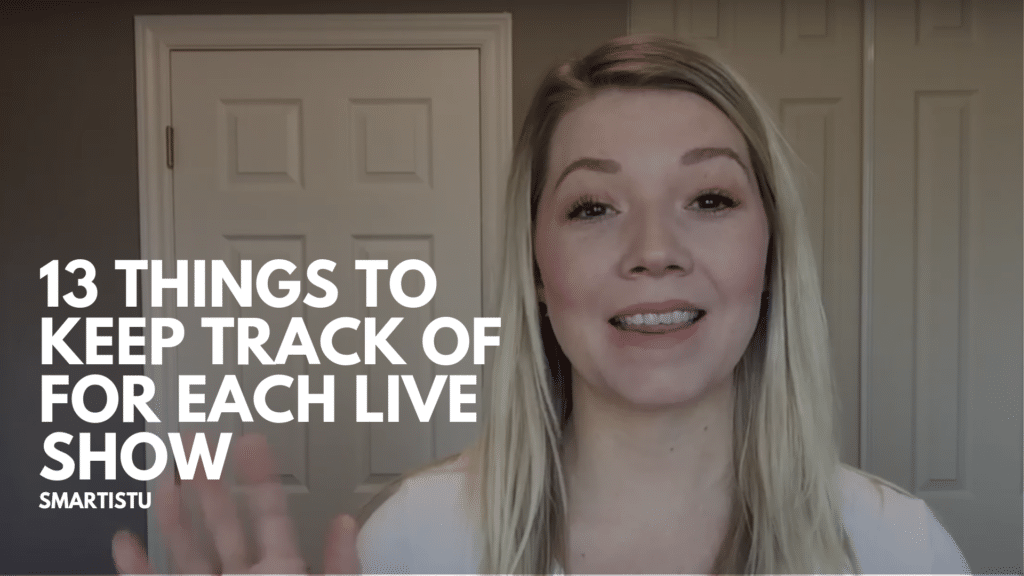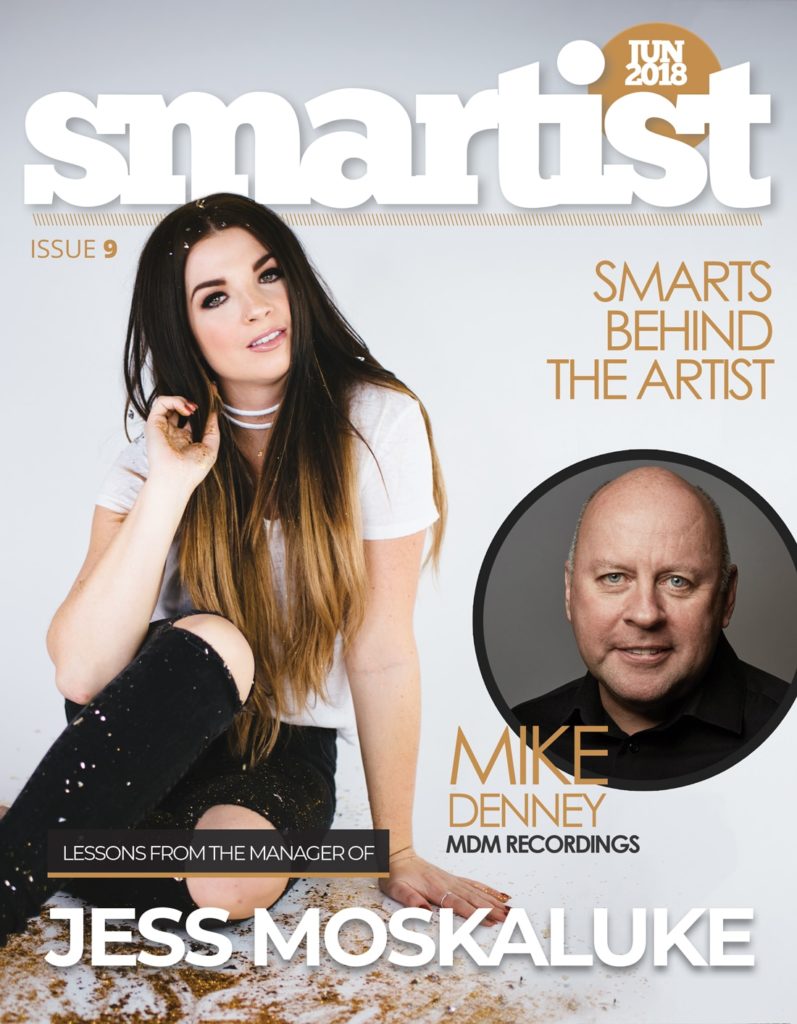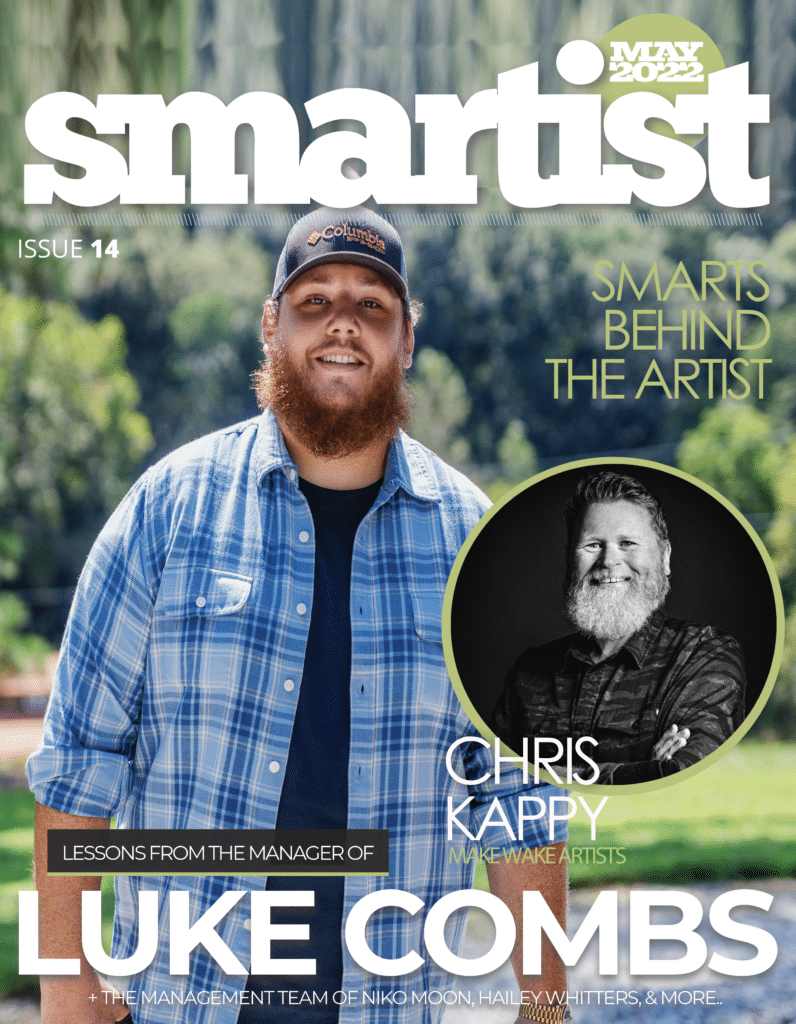13 Things To Keep Track of for Each Live Show

The purpose of keeping track of these things after each live show is to help you make better decisions for future shows, as well as to better negotiate with the buyers for future shows which is super important. But not only that, it can also help you secure a booking agent, a manager, or really any other industry person. The more data you have on your act, and the more you can prove what you’ve done in the past, the better.
When you go back to book a show at a venue or city you’ve already been to, it’s so much easier once you’ve kept track of these things I’m about to mention and can easily reference them without having to draw on your memory. Which is why what I’m about to teach you is actually called a reference sheet.
All our trainings are now available in both audio/visual (video) as well as written (article transcript) format. The article can be read directly below the video. When you’re done reading/watching this, make sure you download your free artist management start-up kit which comes with 10 free templates and guides!
So how do you make a reference sheet?
To start, what you’re going to want to do is get out a piece of paper — or start an Excel sheet or a Word document — and make a table with 13 columns across and however many rows you want. You can base the rows off of however many shows you have coming up. This will make more sense in a second.
Then, if you’re an old-fashioned person who likes writing on paper, you’re going to want to print the sheet out — making sure there’s enough room to write — and bring it to every show with you. Otherwise just bring your laptop to the show and fill it out as part of your show duties after the show, before you forget. We also have a reference sheet included in our paid version of the artist management toolkit, which has over 100 templates inside of it, but you can easily make one yourself.
Here are the 13 things you want to fill into those columns:
1. The Date
Simple!
2. The day of the week
Is it a Friday or Saturday? Before you start wondering how silly this is, knowing the day of the week matters. Let’s say in a year from now, you go to book a show at a venue you played the year prior. They offer you a Monday slot and you’re not happy about it. But then you check your reference sheet and it reminds you that the first time you played there they gave you a Monday time slot, but it turned out the Monday slot was actually a great night because that bar is busy on Mondays! This is why this is important. And the rest of the things on this list get more important as we go so hold tight (in fact, I’d say #13 might be the most important!)
3. The time of your set
4. What city or town was the show in?
5. Venue name
6. Any venue notes
This means to jot down anything that you think you might want to keep track of that may come in handy to your future booking agent or yourself. You might want to keep track of things about the venue that matter to you: perhaps something to do with the sound, the way the buyer and staff treat you, or if they’re professional and pay you correctly.
7. Venue capacity
8. Number of attendees
How many people actually showed up? You can also find out how many people usually show up, to find out if your show was a hit or miss. This is also super important for when you’re going back to re-negotiate a second show in the future because you can tell them what you’ll expect based on your past shows.
9. Audience demographics
Take your best guess as to how old the average guest is. Did they appear to be 18 to 20 year olds? Describe them. What did most of them dress like? Did they dance? Was it a hype show? What was the vibe? This will help you get to know your fans, and help you with your marketing.
10. How many guests did they allow on your guest list? How many of them showed up?
It’s up to you if you want to get more detailed and keep track of their names or who they are.
11. The weather
This can be a huge contributing factor to whether or not people show up. Ha, no pun intended. Is it a scorching hot day in the middle of summer and maybe everyone is away at the lake? Or is it a blizzard and roads are closed? Keeping track of the weather is an underestimated tool in booking future shows.
12. Other “contributing factors” that you can think of
13. Merch sales
And last but definitely not least, perhaps the most important thing you want to keep track of is merch sales. Did you sell $50 in merch or did you sell $500 in merch? This will come in handy in so many ways.
For one, some royalties organizations need to know this, but additionally it can help you decide how much merch to print and bring with you which can save you money. Plus, if you compare how much you sold to how many people were there, you can then get a conversion ratio. Over time, you might start to see some consistency, and better predict how much you THINK you’ll sell when you’re budgeting for future tours.
Let me give you an example. Let’s say 100 people show up and you made $100 from selling 5 t-shirts at $20. That means you have a 5% conversion ratio with an average conversion being $20. 5% because out of 100 people, 5 purchased a shirt. And then over time, you start to see that is quite typical. Then you can start to predict that at each show where you have 100 people, you’re probably going to sell something to 5 people, and depending on the price points of your products, you can predict the revenue numbers. And as usual, you’ll use these numbers when negotiating anything with anyone.
If you liked this training, please comment below with your thoughts and questions. Remember to check out your free downloads, subscribe on YouTube, share this with your music friends, and thank you for reading!





Responses